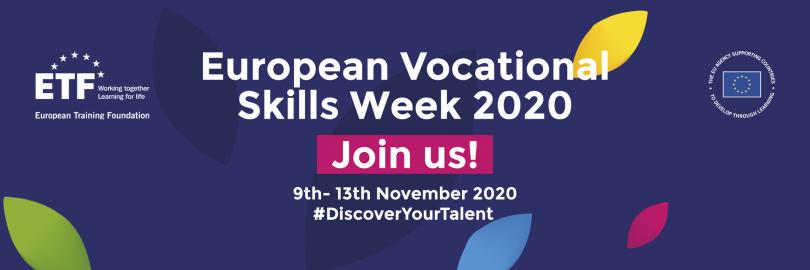
EU neighbours pioneering in innovation and skills
The European Vocational Skills Week has just started, and the best is yet to come. Until November 10, everyone from the learning community can be active part of it and vote for their favourite ETF Innovation and Skills Award project.
The ETF Award celebrates examples of good practice in teaching and learning for digital competence development. Learning design and new/innovative approaches to the development of digital competences are the key selection criteria. Voting takes place with 50% of the vote weighting from a public vote and 50% from the ETF selection committee. The two finalists, from Belarus and Moldova, are really breakthrough.
Belarus: the Republican Institute for Vocational Education
The Republican Institute for Vocational Education (RIPO) has influence and impact that reaches far beyond its network of five top vocational training colleges and a renewable energy resource centre at Minsk's "Volma" Eco-Technopark.
From its headquarters in Karl Liebknecht Street in the Belarusian capital, RIPO is involved in its own quiet, digital revolution, fomenting change in teaching methods to meet the fast shifting demands of 21st century skills training.
Although continuous professional development of the 4,000 staff at its network of colleges involved in teaching construction, mechanical engineering, car service, road construction, food processing and renewable energy sources, is at the heart of its mission, it also trains vocational teachers from institutions in Russia, Kazakhstan, Tajikistan, Nigeria, India and other countries.
Moldova: the Centre of Excellence in Construction
The 1,600 students at the Centre of Excellence in Construction, which offers initial technical education and training programmes in 10 specialist areas at ISCED levels 3, 4 and 5, are fully involved in the social and educational life of the institution, where advanced digital teaching aids - including Smart TVs with internet connections and multipurpose digital classrooms - are complemented by a focus on the use of renewable energy sources, with student dormitories equipped with solar-powered hot water and other advanced energy saving devices. Classroom furniture is even made by the students themselves, as part of their practical training.
But providing a sustainable environment for the students who live, study, eat and socialise on campus is not the only remarkable thing about the Centre of Excellence. Investing in digital skills has long been a focus and the Centre has participated in a raft of digital competency projects that include the EU's eTWINNING project, a nationwide digital programme sponsored by the Liechtenstein Development Service.
To further embedding digital learning - and distance learning made essential by the restrictions of the global COVID pandemic this year - the Centre has developed its own tailored digital training programme for staff as part of its commitment to continuous professional development.
Did you like this article? If you would like to be notified when new content like this is published, subscribe to receive our email alerts.